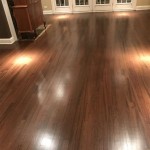The Benefits of Raised Flooring for Basements
If you're looking for a way to improve the functionality and value of your basement, installing raised flooring is an excellent option. Raised flooring, also known as elevated flooring or pedestal flooring, offers a number of advantages over traditional flooring methods, particularly in basements that are prone to moisture and flooding.
Benefits of Raised Flooring for Basements
There are many benefits to installing raised flooring in your basement, including:
- Improved moisture resistance: Raised flooring creates a barrier between your basement floor and the ground, preventing moisture from seeping into your space. This can help to prevent flooding, mold growth, and other moisture-related problems.
- Increased airflow: The space beneath raised flooring allows for increased airflow, which can help to prevent moisture from accumulating. This can also help to keep your basement cooler and more comfortable.
- Easier access to utilities: Raised flooring makes it easier to access utilities, such as electrical wiring, plumbing, and HVAC systems. This can be a major benefit for maintenance and repairs.
- Improved acoustics: Raised flooring can help to reduce noise levels in your basement. This can be beneficial for creating a more comfortable living space or for reducing noise transmission to other parts of your home.
- Increased storage space: The space beneath raised flooring can be used for storage. This can be a valuable asset in a basement, which is often used for storage purposes.
Types of Raised Flooring for Basements
There are two main types of raised flooring for basements:
- Stringer systems: Stringer systems are made up of a grid of metal stringers that support a raised floor panel system. Stringer systems are typically used for heavy-duty applications, such as computer rooms and data centers.
- Pedestal systems: Pedestal systems are made up of individual pedestals that support a raised floor panel system. Pedestal systems are lighter weight and easier to install than stringer systems, and they are typically used for light-duty applications, such as offices and homes.
Choosing the Right Raised Flooring for Your Basement
When choosing raised flooring for your basement, there are a few factors to consider, including:
- The intended use of the space: If you plan to use your basement for heavy-duty applications, such as a computer room or data center, you will need to choose a stringer system. For light-duty applications, such as an office or home, a pedestal system will suffice.
- The height of the raised floor: The height of the raised floor will depend on the height of your basement ceiling and the amount of space you need beneath the floor for utilities and storage.
- The cost of the raised flooring: Raised flooring can be a significant investment, so it is important to factor in the cost when making your decision.
Installing Raised Flooring in Your Basement
Installing raised flooring in your basement is a relatively straightforward process, but it is important to follow the manufacturer's instructions carefully. Here are the general steps involved:
- Prepare the basement floor by leveling it and removing any debris.
- Install the raised flooring system according to the manufacturer's instructions.
- Place the raised floor panels on the system.
- Secure the floor panels in place.
- Install any necessary accessories, such as ramps and stairs.
Conclusion
Raised flooring can be a valuable addition to any basement. It provides a number of benefits, including improved moisture resistance, increased airflow, easier access to utilities, improved acoustics, and increased storage space. If you are considering installing raised flooring in your basement, be sure to do your research and choose a system that is right for your needs.

Raised Floor Basement Why You Need It Titanflor

Raised Floor Basement Why You Need It Titanflor

Raised Floor For Basement Benefits Best Tiles Installation

What Is How Important Raised Flooring And Air Flow

What Is How Important Raised Flooring And Air Flow

Thermaldry Basement Flooring Systems Waterproof

Everything You Need To Know About Raised Access Floors Airfixture

Access Floors A Step Up For Commercial Buildings Buildinggreen

What Is A Floating Basement Floor

Rubber Basement Flooring Buyer S Guide Rubberflooring4u
See Also







